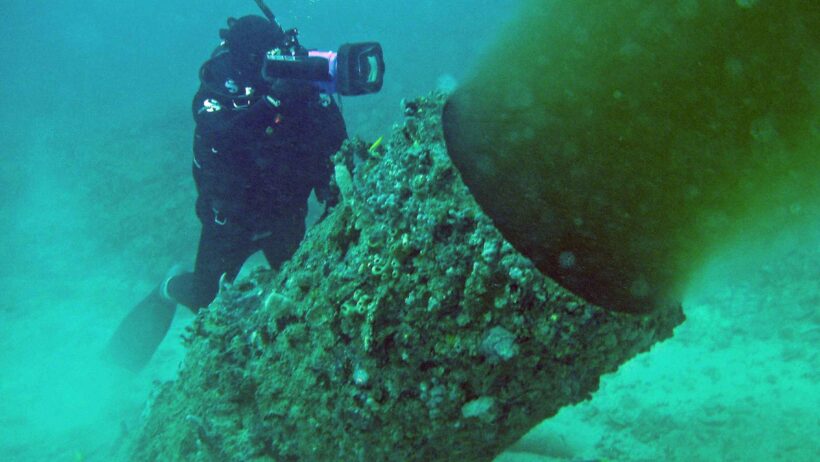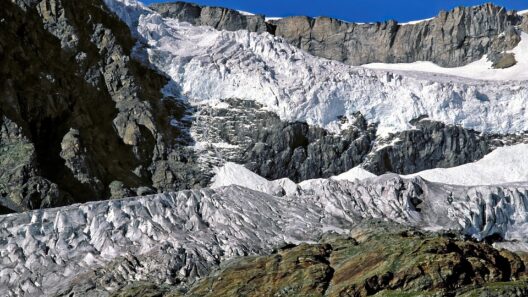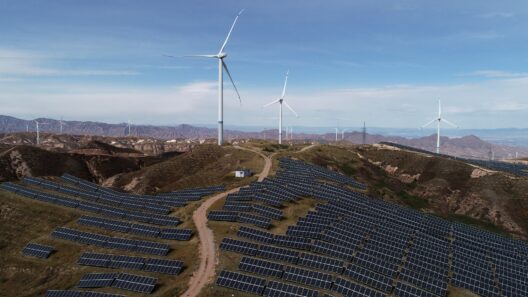The intricate relationship between water usage and climate change is a nuanced subject deserving of attentive discussion. Water is a precious resource, yet it is often squandered in myriad ways. While many might perceive water wastage solely as a local or individual concern, the implications stretch far beyond individual actions, intertwining with broader environmental issues and contributing to the overarching climate crisis.
A common observation is that water is abundant in many regions, leading to a disconnect between perception and reality. This perception fosters an environment where individuals and industries feel uninhibited in their consumption. In many developed nations, water appears to flow freely from taps and hoses, which leads to a false sense of security regarding its availability. However, this abundance masks the systemic challenges faced by many ecosystems and communities worldwide that are grappling with water scarcity.
The ecological impact of wasting water is multi-dimensional. Firstly, water that is used inefficiently increases demand for this precious resource, leading to over-extraction from natural sources. Rivers, lakes, and aquifers are drained at rates surpassing their natural replenishment, disrupting aquatic ecosystems. This depletion alters habitats, threatens biodiversity, and displaces species that rely on specific water conditions. Aquatic ecosystems serve critical functions, including carbon sequestration, filtration of pollutants, and the provision of habitat for a variety of life forms. The diminishment of these ecosystems not only contributes to the broader biodiversity crisis but exacerbates climate change as the natural mechanisms that regulate atmospheric carbon are compromised.
Moreover, wasting water has significant implications for energy consumption and greenhouse gas emissions. The extraction, treatment, and distribution of water require substantial energy inputs. For example, pumping water from distant sources or desalinization processes incur a heavy environmental toll. A direct correlation exists between water wastage and increased energy demand; when water is used without care, energy consumption rises, leading to amplified greenhouse gas emissions. This chain reaction illustrates how irresponsible water use can inadvertently heighten climate pressures, compounding the myriad of factors contributing to global warming.
Furthermore, the implications extend to agricultural practices, where water wastage can lead to significant inefficiencies. Agriculture is the largest consumer of freshwater worldwide, and its reliance on ineffective irrigation methods exemplifies the urgency of addressing water conservation. Traditional practices often lead to excessive water usage, resulting in runoff that carries synthetic fertilizers and pesticides into waterways, further degrading water quality. This pollution not only affects local ecosystems but also has far-reaching consequences for human health and food security.
In addition to the environmental ramifications, the socio-economic impacts of water wastage are profound. Communities that lack access to clean and sufficient water supplies face myriad challenges, including health risks, diminished agricultural productivity, and increased poverty levels. As climate change intensifies, it creates conditions that exacerbate water scarcity, leading to conflicts over resources. The intertwining of climate change and water scarcity poses risks not only to the environment but also to societal stability and human rights.
One striking aspect of the conversation surrounding water and climate is the potential for innovative solutions. Numerous technologies exist that can optimize water usage and promote sustainability in both urban and agricultural contexts. Implementing smart water management systems, utilizing rainwater harvesting, and promoting drought-resistant crops are viable strategies that can mitigate the adverse effects of water waste. Additionally, public awareness and education campaigns can shift attitudes towards water consumption, fostering a culture of conservation that emphasizes stewardship and responsibility.
Moreover, the role of policy cannot be understated. Governments play a crucial part in establishing regulations and incentives that encourage sustainable water practices. By enacting water pricing models that reflect true costs and investing in water infrastructure, authorities can address inefficiencies and promote responsible usage at all levels. Collaborative efforts between governments, non-profit organizations, and communities can create synergies that enhance the resilience of both water supply systems and ecosystems against the backdrop of climate change.
Finally, individuals bear responsibility in this equation. Every action, no matter how small, contributes to the larger picture. Simple changes in daily routines, such as fixing leaks, adopting water-efficient fixtures, and reducing unnecessary consumption, can collectively create a substantial impact. Public engagement transforms abstract concepts into tangible actions, galvanizing communities to prioritize water conservation and recognize its vital connection to climate health.
Ultimately, the question of whether wasting water harms the planet’s climate is intricately tied to broader environmental and social dynamics. Addressing water wastage is not merely an environmental obligation; it is a moral and ethical imperative. The consequences of neglecting this resource resonate across ecosystems and human societies alike. A coordinated approach that involves innovative practices, policy reforms, and individual action is essential for the stewardship of water resources and the stabilization of our climate. As we confront the reality of climate change, the importance of preserving water cannot be overstated; it is a crucial element in securing a sustainable future for the planet and for generations yet to come.







